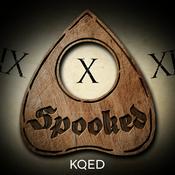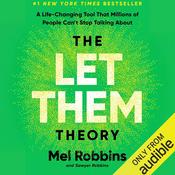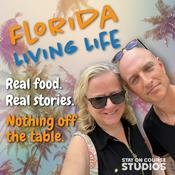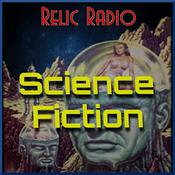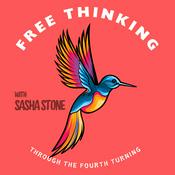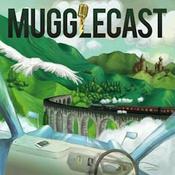314 episodes
- Carolina Lopez, a multifaceted talent in both acting and music, shares her profound journey of self-discovery and artistic expression in this engaging episode. She emphasizes the importance of authenticity in her craft, illustrating how her unique voice sets her apart in a competitive landscape. Lopez recounts a pivotal moment in her youth that reshaped her understanding of failure as a necessary component for growth in the arts. Through her reflections, we explore her transition from acting to music, unveiling the intimate themes woven into her lyrics. This conversation not only highlights her creative process but also her commitment to fostering a genuine connection with her audience, encouraging us all to embrace our true selves.
Takeaways:
Carolina Lopez emphasizes the significance of embracing failure as a crucial element for personal and artistic growth, underscoring that one must be willing to fail in order to evolve and improve.
During her youth, Carolina experienced challenges with her low singing voice, yet she learned to embrace her unique vocal qualities, ultimately crafting a distinct musical identity.
The conversation highlights the importance of authenticity in music creation, with Carolina expressing her commitment to producing work that resonates with her true self rather than conforming to industry trends.
Carolina speaks about her father's influence on her artistic journey, recounting how his encouragement to pursue her passion for music has empowered her to continue creating and expressing herself through song.
In discussing her transition to music from acting, Carolina articulates the desire to convey intimate and personal narratives through her lyrics, which reflect her lived experiences and evoke empathy in listeners.
She notes the challenges faced by artists in the contemporary music industry, stressing the necessity for musicians to remain true to their essence while navigating commercial pressures and societal expectations. - Judith Hill's narrative begins with a fortuitous encounter that catapulted her from relative obscurity to the illustrious stage alongside Michael Jackson. The genesis of her journey is marked by an invitation to audition for Jackson's ensemble after being recognized during local jazz performances. This pivotal moment serves as a profound reflection on the intersections of talent, opportunity, and the unpredictable nature of the music industry. Hill’s audition experience, where she showcased her vocal prowess by performing iconic tracks such as 'Remember the Time', illustrates the serendipitous nature of artistic success and the merit-based recognition that can occur in the most unexpected circumstances.
As the dialogue unfolds, Hill provides an in-depth exploration of her experiences during the rehearsals for Jackson’s 'This Is It' concert series. This period was not only marked by Jackson's exceptional talent but also by his visionary approach to music and performance. Hill vividly recounts the energy of the rehearsals and the collaborative spirit that permeated the atmosphere, revealing Jackson as not just a performer but a creative force who inspired those around him. The impact of these rehearsals on Hill is palpable; she describes them as a masterclass in artistry, highlighting the lessons learned about the power of music to evoke emotion and foster connection. This experience significantly shaped her artistic philosophy, instilling a deep understanding of music as a transformative medium that can influence audiences on a grand scale.
In the latter part of the episode, Hill reflects on how her experiences with Jackson have informed her career trajectory and artistic endeavors. She discusses the challenges of contemporary music-making, particularly in the context of digital platforms like Spotify, advocating for music that retains its visceral energy when performed live. Hill articulates a vision for her work that prioritizes audience engagement and emotional resonance, drawing from her rich heritage and the lessons gleaned from working with Jackson. Her commitment to authenticity in her music is evident, as she navigates the balance between creative expression and commercial viability. This episode serves not only as a testament to Hill’s remarkable journey but also as an invitation for listeners to appreciate the profound impact of music in their own lives.
Takeaways:
Judith Hill recounts her unexpected opportunity to audition for Michael Jackson's tour, illustrating how serendipity can alter one's career trajectory.
Her experience during the rehearsals for Michael Jackson's 'This Is It' tour was pivotal, providing insights into the profound impact of performance on human connection.
Hill emphasizes the importance of using music as a powerful medium to inspire and uplift people, a lesson she learned from observing Michael Jackson's artistry.
She reflects on the contrasting experiences of writing music for intimate settings, such as Spotify, versus the high-energy demands of live performances in larger venues.
Through her journey, Hill highlights the blend of her classical training and contemporary performance, demonstrating the versatility required in modern music.
The discussion reveals her belief in the necessity of live interaction to inform her songwriting process, as opposed to creating music in isolation.
Links referenced in this episode:
myspace.com - The focal point of our discussion centers on the intricate interplay between artistry and the evolving landscape of social media, particularly for emerging musicians. We delve into the transformative journey that has transpired since our last conversation, highlighting the rapid pace of change in both personal and professional realms. The dialogue navigates the complexities artists face in establishing a robust social media presence while maintaining their creative integrity and career aspirations. We further explore the significance of strategic branding and the impact of community engagement, emphasizing the necessity of authenticity in connecting with audiences. Ultimately, our conversation underscores the trials and triumphs inherent in the pursuit of artistic excellence amidst an ever-shifting cultural milieu.
Takeaways:
In the contemporary landscape, the rapid pace of technological advancements significantly alters our perception of time, making each year feel increasingly condensed.
The journey of an artist necessitates a profound understanding of social media dynamics, requiring consistent engagement to foster a dedicated audience.
Building a brand involves a strategic approach to social media, where trial and error becomes an integral part of the creative process.
Establishing meaningful relationships within the industry is paramount, as genuine connections can lead to significant opportunities and collaborations.
The importance of self-reflection and personal growth cannot be overstated; artists must often confront their internal challenges to achieve external success.
Participation in mentorship programs not only aids personal development but also allows established artists to uplift emerging talents in the industry.
Companies mentioned in this episode:
Facebook
Instagram
YouTube
Yamaha
Nord
Core
Hammond
Juicy Ears
Western Union - Tate Yap eloquently articulates his dual passion for acting and music, revealing a profound belief that success in one domain can catalyze growth in the other. Throughout our conversation, he reflects on the evolution of his artistry, from early aspirations to the therapeutic refuge music provides him. He candidly shares the challenges of navigating the entertainment industry, particularly as someone who has transitioned from a childhood actor to a budding musician. Tate emphasizes the importance of authenticity in building a lasting audience, arguing that genuine connections with fans far outweigh the allure of fleeting viral fame. As he embarks on his journey into live performances, he demonstrates an admirable commitment to his craft, underscoring the notion that perseverance and self-awareness are paramount for any artist aspiring for success.
Takeaways:
Tate Yap emphasizes his dual passion for acting and music, illustrating how both creative pursuits complement and enhance one another throughout his career journey.
He recounts his early experiences with music, detailing how a pivotal moment of rediscovering his voice rekindled his passion for songwriting and performance.
Yap discusses the importance of social media in promoting music, noting that engaging content can significantly influence audience growth and listener retention.
In navigating the music industry, he shares the significance of being authentic and true to oneself, suggesting this authenticity fosters a more dedicated and genuine fanbase.
Tate reveals the challenges he faced while growing up outside of major entertainment hubs, highlighting the perseverance required to pursue a career in the arts despite logistical hurdles.
He advocates for a proactive approach in seeking opportunities, encouraging aspiring artists to reach out and network with industry professionals to cultivate their careers. - In this enlightening discourse, we engage with Andre from multitracks.com, who elucidates the profound evolution of music production and accessibility within the worship context. Central to our conversation is the transformative impact of multitrack technology, which has revolutionized the manner in which musicians and worship teams approach performance, allowing for a greater level of authenticity and creativity. Andre highlights the innovative tools offered by Multitracks, including the Rehearsal Mix and Chart Builder, which facilitate seamless collaboration and practice among team members, thereby enhancing overall musical integrity. Furthermore, he articulates the importance of user feedback in driving product development, ensuring that the solutions provided are not only relevant but also responsive to the needs of the community. As we delve deeper into this topic, we uncover the intricate relationship between technology and worship, ultimately illustrating how these advancements empower musicians to deliver their best in a worship setting.
Takeaways:
The evolution of music expectations in churches has significantly transformed over the years, reflecting broader cultural changes.
Multitracks.com plays a pivotal role in providing access to high-quality tracks that enhance worship experiences across various settings.
The innovative features of multitrack playback systems allow musicians to synchronize their performances seamlessly with recorded music, enhancing overall coordination.
The introduction of MIDI cues in multitracks has revolutionized live performances by enabling musicians to control lighting and visual elements in sync with the music.
The Rehearsal Mix feature offered by Multitracks allows musicians to practice their specific parts effectively, ensuring they arrive at rehearsals well-prepared.
The Chart Builder application integrates various resources, providing musicians with real-time access to their charts and rehearsal mixes, streamlining the preparation process for worship teams.
Links referenced in this episode:
multitracks.com
Companies mentioned in this episode:
multitracks.com
Ableton
ProPresenter
Planning Center
Chart Builder
Chart Pro
Rehearsal Mix
Playback
More Arts podcasts
Trending Arts podcasts
About Music Explored Podcast
Exclusive insights from the forefront of the music world, uncovering the creative process, cutting-edge technology, and the business acumen driving the industry forward.
Podcast websiteListen to Music Explored Podcast, Articles of Interest and many other podcasts from around the world with the radio.net app

Get the free radio.net app
- Stations and podcasts to bookmark
- Stream via Wi-Fi or Bluetooth
- Supports Carplay & Android Auto
- Many other app features
Get the free radio.net app
- Stations and podcasts to bookmark
- Stream via Wi-Fi or Bluetooth
- Supports Carplay & Android Auto
- Many other app features


Music Explored Podcast
Scan code,
download the app,
start listening.
download the app,
start listening.






